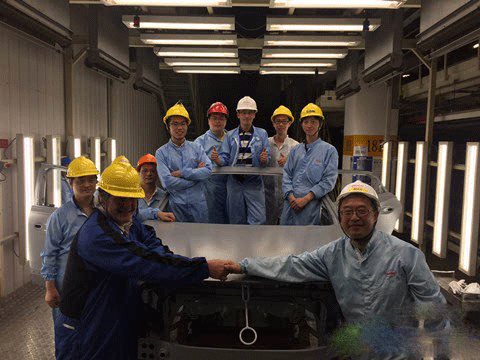As an important industry for social and economic development, the automobile manufacturing industry undertakes It is a major responsibility to save energy, reduce emissions and reduce pollution. Henkel Bonderiter M-NT 1820 surface pretreatment technology, also known as film pretreatment, is an innovative technology that replaces traditional phosphating pretreatment. This ground-breaking solution will redefine surface preparation technology for the automotive industry and set new standards for global automotive manufacturing. As a global leader in automotive surface treatment products, Henkel has always been committed to achieving sustainable development of environmental protection and energy conservation, and assuming due social responsibilities – creating more value for customers while reducing environmental footprints.

Recently, Henkel’s Asia-Pacific automotive technology team used Bonderiter M-NT 1820 surface pretreatment technology to assist SAIC-GM in upgrading its body painting production line. The paint workshop of SAIC-GM’s Jinqiao South Plant was opened in 2003. Henkel’s traditional zinc-based phosphating pre-treatment process has been used since the establishment of the plant. It can process 300,000 passenger cars annually, covering Buick Regal, Buick LaCrosse, Cadillac ATS- L and other high-end models. In May 2016, with the comprehensive technical support of Henkel China, the pre-treatment process of the paint workshop of Jinqiao South Factory was upgraded and transformed into zirconium salt film treatment, and it reached mass production after a week of debugging. Henkel won the customer’s approval for the excellent performance of Bonderiter thin film technology, as well as the technology’s excellent performance in waste treatment and energy saving.
Mr. Kevin Cunningham (GM Global PT/ED SME), the global pre-treatment/electrospraying expert of General Motors, told Terry Giles (Henkel Surface Treatment Global BDM), the global business development manager of Henkel Surface Treatment, that “this It is a successful innovation in Asia and will be regarded as a benchmark for development by the auto industry peers.”
At present, almost all automobile manufacturers adopt the traditional phosphating process. This process has process defects such as high energy consumption, high content of heavy metal ions, and large discharge of waste water and residue, which can no longer meet today’s strict environmental protection requirements. As people pay more and more attention to environmental protection, the future pretreatment technology should develop in the direction of environmental protection, cost reduction, quality improvement and easy operation.
Bonderiter M-NT 1820 surface pretreatment technology replaces the traditional phosphating and passivation process, it can be carried out at room temperature without heating, and is suitable for various metal plates, which greatly shortens the process flow and reduces the Equipment investment and process control costs. Compared with the traditional pre-treatment process, the discharge of heavy metals, waste and waste water is greatly reduced, saving precious water resources and waste treatment costs. Since there is no need for surface adjustment and passivation, the process and equipment investment are reduced, and the operating costs including water, electricity, natural gas and chemical agents are all reduced.
In 2016, Henkel’s Bonderiter film pretreatment technology was applied in the workshop of passenger car body painting and won the SURCAR Best Environmental Contribution Award. The award is another milestone in Henkel’s sustainability strategy.
During the development of the automotive coating industry, Henkel has long been committed to cutting-edge technology solutions, and has taken the lead in launching zirconium-based film pretreatment materials suitable for various plates in the world. At present, Henkel is an advanced service provider in the Chinese market that helps customers evaluate existing production lines and realize technology upgrades. It realizes technology upgrades at the lowest cost, realizes energy saving and consumption reduction, and reduces the overall operating costs of the factory. The production line glows with the vitality of new technologies.



 微信扫一扫打赏
微信扫一扫打赏
